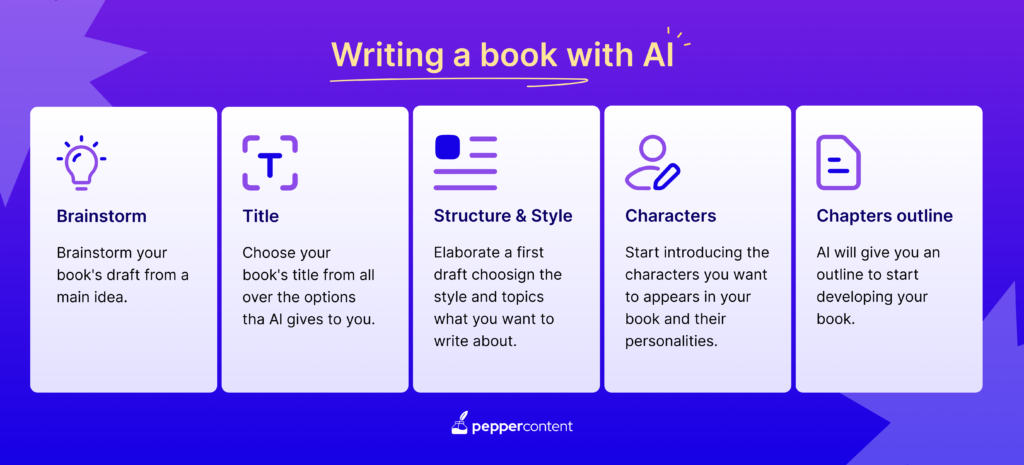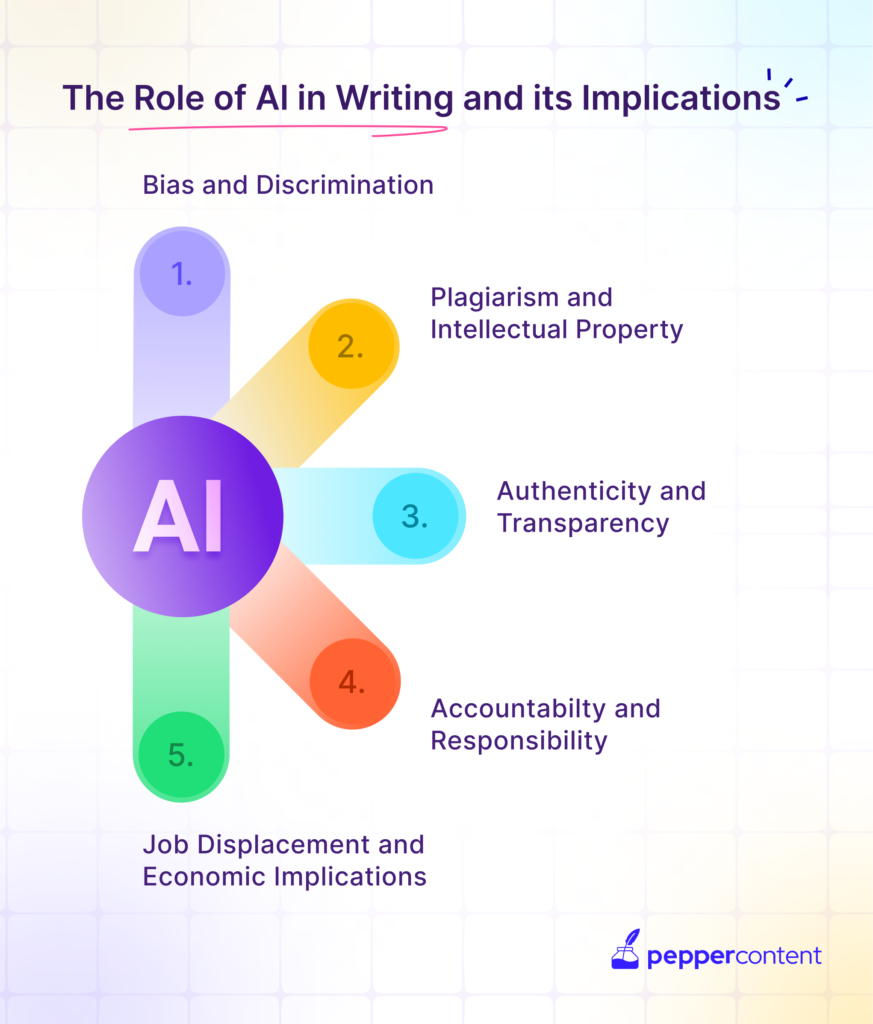AI in Writing: Enhancing Creativity in Books, Code, Essays, and Emails

Writing today is experiencing a marked change. Artificial intelligence, once an idea far removed from everyday use, has become an essential tool in content creation. AI in writing is no longer a curiosity; it’s a workhorse that spans industries—from book writing to coding, emails to essays. This technology, far from being an add-on, is reshaping the act of writing into something faster, smarter, and more precise. But it does so without stealing the limelight from human creativity. Instead, AI in writing becomes an extension of the writer, offering efficiency, structure, and endless possibilities.
AI in Writing Books: Bringing Structure to Creativity

Let’s start with the world of books. AI for writing books might sound futuristic, but its application is already changing how stories come to life. What AI does here is simple yet profound: it analyzes the patterns in existing narratives, helping authors create plots that hold together while keeping characters authentic and compelling. The data-driven precision of AI enables writers to sharpen their storytelling without being bogged down by structural missteps.
Think of AI as a co-writer. It won’t replace the passion and imagination of the human author, but it acts as a valuable guide. With AI in writing, authors can test new plot structures, character arcs, and storylines before committing to a particular narrative. It’s like having a brainstorming partner who offers suggestions that can help refine them. This allows authors more creative freedom while ensuring their work remains cohesive. For authors who struggle with writer’s block, AI in writing books can generate story ideas based on their preferences and past works. It’s like having a vault of inspiration always at your fingertips. While the heavy lifting still rests on the author’s shoulders, AI ensures the writer isn’t alone.
AI for Writing Code: Smart Support for Developers
While developers have long relied on manual methods to write, debug, and fine-tune code, AI in writing now offers tools that handle these tasks more efficiently. By scanning large codebases and suggesting improvements, AI takes some pressure off developers, letting them zero in on more intricate challenges.
What sets AI for writing code apart is its collaborative nature. It works alongside developers, streamlining the process with real-time suggestions. AI can flag potential bugs before they become full-blown issues or suggest alternative coding methods to improve outcomes. Even routine tasks like generating documentation are simplified, giving developers more time to focus on the work that truly matters.
With AI in writing, developers can tackle massive projects more seamlessly, while improving code quality. This partnership between man and machine reduces errors and enhances productivity—a combination that even the most seasoned developers will appreciate.
AI for Writing Essays: A Study Aid for Students
Writing academic papers has always been tough, but AI for writing essays is lightening the load. Students often struggle with structuring their thoughts and presenting them logically and convincingly. This is where AI in writing steps in. AI tools can create structured outlines, giving students a clear roadmap. These outlines ensure well-organized arguments supported by relevant evidence.
AI for writing essays also offers more than just basic proofreading. If a student is stuck on how to frame an argument, AI can suggest clearer phrasing and better coherence. This goes beyond spelling and grammar—it helps students refine their ideas and make their essays more persuasive.
It’s not about taking shortcuts. While AI for writing essays can certainly ease the workload, the real value is how it guides students toward building their unique arguments.
AI for Writing Emails: Simplifying Everyday Communication
Email remains a crucial form of communication, especially in the business world. However, crafting the perfect email can be a time-consuming process. Enter AI for writing emails, a solution designed to make email writing quicker and more accurate. Whether it’s offering draft responses or proposing subject lines, AI in writing eliminates much of the guesswork from email composition.
With AI’s help, professionals can maintain a consistent tone, ensuring their emails are clear, concise, and perfectly suited to the context. This is especially valuable in customer service or business communication, where tone can easily be misinterpreted. Over time, AI for writing emails becomes even more personalized, learning from past interactions to fine-tune its suggestions.
By automating the routine aspects of email communication, professionals can redirect their focus to more pressing tasks, confident that their emails are polished and professional.
AI in Writing Stories: Sparking New Levels of Creativity
While human imagination remains at the core, AI can help by providing new ideas, plot twists, and character developments. It doesn’t impose its ideas on the writer but serves as a wellspring of inspiration for authors looking for new possibilities.
AI can suggest storylines or characters that fit the writer’s style. This makes it a valuable tool for those experiencing creative block or writers who want to experiment with different genres and formats. While it can generate entire stories, the real magic happens when authors use AI to refine their work, ensuring their narrative is as compelling as possible.
It’s a partnership, not a replacement. Writers are still in the driver’s seat, but AI in writing stories ensures they never run out of creative fuel.
AI for Writing: Addressing Ethical Concerns

As much as AI in writing helps streamline processes, it raises ethical questions. For instance, AI for writing essays might blur the line between student and machine-generated work. Concerns like these need addressing, especially in education and industry.
There are concerns about originality when using AI in writing. AI’s ability to generate high-quality content quickly can sometimes lead to inaccuracies and potential copyright issues. Writing books, essays, or emails with AI’s help can result in unintentional errors. As AI becomes more integrated into the writing process, it’s important to be aware of these risks and ensure proper measures are in place to address them.
Looking forward, AI in writing is set to become even more prevalent. From authors working on their next novel to developers debugging code, the reach of AI is vast.
AI in writing books, emails, code, and essays provides opportunities for greater productivity and creativity. But, it’s essential to strike a balance—letting AI handle the repetitive, mundane tasks while keeping the human element at the heart of content creation. As we navigate this new landscape, the partnership between human creativity and AI’s capabilities is poised to open up exciting new possibilities.
For those ready to experience the future of AI-driven content creation firsthand, Pepper Content’s Generative AI is the perfect place to start. Designed to assist you with everything from crafting engaging narratives to optimizing communication, this powerful tool puts cutting-edge AI in your hands. Discover how you can create smarter, faster, and more engaging content with GenAI today.
Ready to elevate your writing game? Get started with Pepper Content GenAI now!
Latest Blogs
Learn how to rank on AI search engines like ChatGPT, Perplexity, and Gemini by optimizing your content for authority, structure, and relevance. Stay ahead in AI-driven search with this strategic guide.
Explore the best healthcare SEO services for your medical practice. Improve online visibility and effectively reach more patients in need of your services.
Discover top social media agencies specializing in banking solutions, enhancing financial services and driving engagement.
Get your hands on the latest news!
Similar Posts
Artificial Intelligence
3 mins read
How to Rank on ChatGPT, Perplexity, and Gemini: A Strategic Guide for Marketers

Artificial Intelligence
5 mins read
How Free AI Tools for Content Creation Can Boost Your Content Strategy

Artificial Intelligence
5 mins read